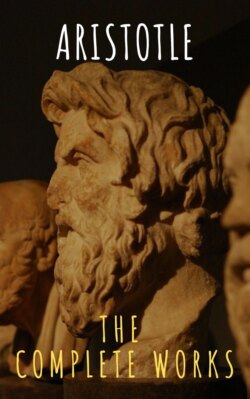Читать книгу Aristotle: The Complete Works - Aristotle - Страница 263
На сайте Литреса книга снята с продажи.
31
ОглавлениеWith regard to those who draw one into repeating the same thing a number of times, it is clear that one must not grant that predications of relative terms have any meaning in abstraction by themselves, e.g. that ‘double’ is a significant term apart from the whole phrase ‘double of half’ merely on the ground that it figures in it. For ten figures in ‘ten minus one’ and in ‘not do’, and generally the affirmation in the negation; but for all that, suppose any one were to say, ‘This is not white’, he does not say that it is white. The bare word ‘double’, one may perhaps say, has not even any meaning at all, any more than has ‘the’ in ‘the half’: and even if it has a meaning, yet it has not the same meaning as in the combination. Nor is ‘knowledge’ the same thing in a specific branch of it (suppose it, e.g. to be ‘medical knowledge’) as it is in general: for in general it was the ‘knowledge of the knowable’. In the case of terms that are predicated of the terms through which they are defined, you should say the same thing, that the term defined is not the same in abstraction as it is in the whole phrase. For ‘concave’ has a general meaning which is the same in the case of a snub nose, and of a bandy leg, but when added to either substantive nothing prevents it from differentiating its meaning; in fact it bears one sense as applied to the nose, and another as applied to the leg: for in the former connexion it means ‘snub’ and in the latter ‘bandyshaped’; i.e. it makes no difference whether you say ‘a snub nose’ or ‘a concave nose’. Moreover, the expression must not be granted in the nominative case: for it is a falsehood. For snubness is not a concave nose but something (e.g. an affection) belonging to a nose: hence, there is no absurdity in supposing that the snub nose is a nose possessing the concavity that belongs to a nose.
<
div id="section32" class="section" title="32">
